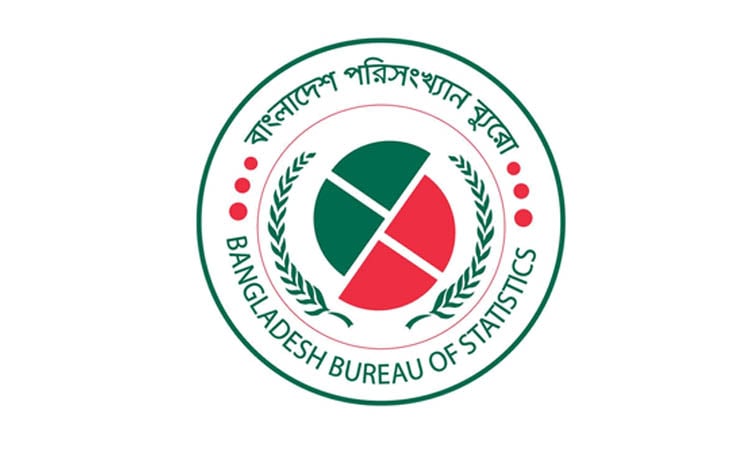News Flash


DHAKA, Nov 19, 2025 (BSS) - The United Nations Population Fund (UNFPA) has welcomed the release of the preliminary findings of the 2025 Multiple Indicator Cluster Survey (MICS), conducted by the Bangladesh Bureau of Statistics (BBS) with technical support from UNICEF.
The survey, which covers 172 indicators, including 27 linked to the Sustainable Development Goals, offers an essential and timely picture of the health and wellbeing of women and children in Bangladesh, said a UNFPA press release here today.
The preliminary findings revealed encouraging progress in several key areas of maternal and newborn health.
Bangladesh has made notable strides in reducing infant mortality, which has declined from 34 deaths per 1,000 live births in 2019 to 29 in 2025.
The findings also show significant improvements in maternal health service coverage, with 71 percent of women now delivering in health facilities and 77 percent of deliveries conducted by skilled birth attendants, a notable rise compared to the MICS 2019 round.
These positive trends reflect the government’s sustained commitment to improving health outcomes and strengthening service delivery systems.
UNFPA salutes the government of Bangladesh for these achievements, and has proudly supported efforts for nearly five decades- establishing a dedicated workforce through initiating midwifery education and services, maternal health system strengthening, and the enhancement of quality care for mothers and newborns.
Despite this progress, several indicators raise concerns that require urgent attention if Bangladesh is to fully realise its national and global commitments.
Child marriage, while declining overall, remains deeply entrenched. The percentage of women aged 20–24 who were married before the age of 18 has decreased from 51.4 percent in 2019 to 47.2 percent in 2025, signalling progress that needs to be accelerated.
However, the proportion of adolescent girls aged 15–19 who are currently married has increased from 32.9 percent to 38.9 percent.
According to UNFPA estimates, at the current pace of reduction, the country would require over 200 years to eliminate child marriage, a timeline incompatible with Bangladesh’s aspirations for gender equality and sustainable development.
The increase in adolescent birth rate from 83 to 92 among 1,000 girls aged 15-19 underscores the strong link between early marriage, early childbearing, and compromised health and social outcomes.
The MICS findings also revealed shifts in fertility patterns. Total fertility rates have slightly increased, a change partly attributed to disruptions in accessing family planning services during the COVID-19 pandemic and a decline in contraceptive prevalence, now stands at 58.2 percent.
Although unmet need for family planning has seen some adjustment, women’s access to modern contraception remains uneven, limiting their ability to make rights-based and informed choices about their reproductive health.
The Ministry of Health and Family Welfare of Bangladesh has recently launched the first ever National Family Planning Strategy (2025-2030) which offers a human rights-based framework for strengthening the policy environment and ensuring universal access to quality family planning services.
Earlier this year the government also launched the National Population Policy 2025 with a paradigm shift from population control to a focus on rights and choices.
The policy emphasizes a life-cycle approach to fulfill the potential of every stage of life from childhood to elder hood with special attention to adolescent and young population’s human capital such as education, employment, life skills, health, well-being and gender equality.
UNFPA has provided technical support in developing both these strategic documents and reaffirms the centrality of a rights-based rather than population control approach.
Meanwhile, the rapid rise in Caesarean section deliveries — from 36 percent in 2019 to 51.8 percent — raises concerns about lack of availability of human resources for maternal health care for pregnancy and normal delivery at sub district level, and overmedicalisation, particularly given that the majority of C-sections are taking place in inadequately regulated private facilities.
This trend heightens risks of unnecessary surgical interventions, poor-quality care, and iatrogenic fistula caused by unsafe surgery, while persistent gaps in access to timely emergency obstetric services in public facilities continue to expose women to preventable complications.
C-sections also lead to increased out of pocket expenditures for the very poor which can be financially devastating.
Accelerating the deployment of adequate trained midwives, timely referral, ensuring safe surgery, and improving clinical governance and oversight are essential steps toward addressing these challenges.
Figures on eclampsia right after delivery, ante- and postpartum haemorrhage, prolonged labour and breastfeeding initiation also raise concerns about quality and frequency of care during pregnancy, management of high risk pregnancy, as well as care of both mother and newborn during and after birth, highlighting the urgency for rolling out of labour room protocol, post-partum haemorrhage, and eclampsia action plan combined with an inclusion of assisted vaginal delivery to the scope of practice for midwives.
The findings highlight the urgent need to expand access to rights-based family planning and, uninterrupted supply of contraceptives, deploy midwives and human resources for maternal and newborn health at public facilities, prevent adolescent pregnancy, promote delayed marriage and continuation of schooling for adolescent girls and boys, as well as advocate for the need to address harmful social norms and practices that perpetuate child marriage and gender based violence.
The country also needs to mobilise communities to support girls in reaching their full potential. This requires strong government leadership and investment of the national budget, as well as active engagement of civil society, academia, media, local communities, and young people themselves as agents of change.
“As Bangladesh accelerates toward upper-middle-income status by 2031 and strives to achieve the SDGs, there is no pathway to success without investing in the health, rights, and education of women and girls,” said Catherine Breen Kamkong, UNFPA Representative in Bangladesh.
UNFPA remains a steadfast partner of the government of Bangladesh and will continue to support a rights-based approach to family planning, strengthen maternal health services, eliminate violence, and expand opportunities for women, adolescent girls, and young people to reach their full potential.